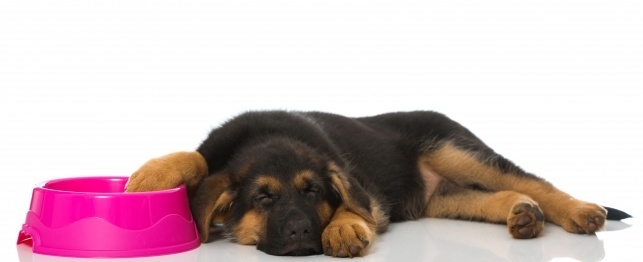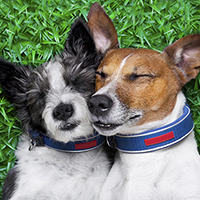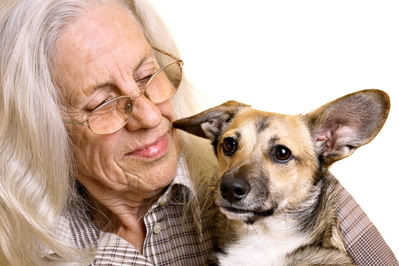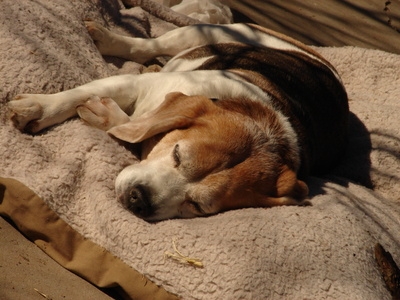She had all of the classic dog parvo symptoms, yet we did not realize immediately what was wrong. Fortunately, though, we had the foresight to immediately take her to our veterinarian, and parvo treatment was commenced immediately.
After a four day stay at the veterinary hospital, Lucy was ready to come home. And although we have since found out about more natural parvo treatments, we were actually very pleasantly surprised by our vet bill.
So what is Parvo? And What Treatments for Parvo are Out There?
The parvo virus works in one of two ways - through the heart or the intestines. The intestinal infection is picked up by an animal through oral contact with contaminated feces. In other words, a dog has to come into contaminated feces from another dog. The intestinal dog parvo symptoms happen when the virus attacks rapidly dividing cells in the intestinal crypts, lymph nodes and bone marrow. This allows normally occurring bacteria from the intestine to enter the blood stream make the animal contagious. The virus is shed in the stool for up to three weeks making this disease very contagious to non-vaccinated pets.
The cardio form of this infection is often seen in puppies that are infected from the womb or shortly after birth. It is well worth noting that the cardiac form of CPV is not as common since the mother passes immunity on to her puppies from birth. The parvo virus then attacks the heart in the infected pup and death results shortly thereafter.
Dog parvo symptoms usually present themselves within 3 to 10 days of contact. They include the following: lethargy, vomiting, fever and diarrhea. The diarrhea can cause severe dehydration and secondary infections. The dog will not usually die from the virus but from a secondary infection.
Survival rate depends on how quickly parvo is diagnosed and parvo treatment is begun. When the case is not caught early the best treatment option is an IV through which fluids are pushed to re-hydrate the animal more quickly, in addition anti-nausea and antibiotic shots may be given intramuscular. The prognosis is good with proper parvo treatment, but a death sentence without it.

 Ideal Dog Schedule
Ideal Daily Schedule for Dogs and Puppies
Ideal Dog Schedule
Ideal Daily Schedule for Dogs and Puppies
 Picking the Right Food for Your Puppy
Picking the Right Food for Your Puppy
Picking the Right Food for Your Puppy
Picking the Right Food for Your Puppy
 Let’s Go to the Vet
Let’s Go to the Vet – M
Let’s Go to the Vet
Let’s Go to the Vet – M
 Dealing with Canine Arthritis
If you have an older dog, look for
Dealing with Canine Arthritis
If you have an older dog, look for
 Signs of a Dog That Has Lost Her Litter of Puppies
Signs of a Dog That Has Lost Her Litter of Pup
Signs of a Dog That Has Lost Her Litter of Puppies
Signs of a Dog That Has Lost Her Litter of Pup